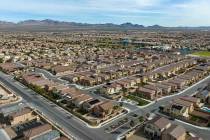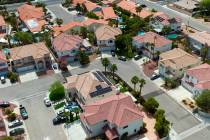Buyers’ attitudes about foreclosures changing

Attitudes toward foreclosures are changing as buyers become more realistic about price discounts and more reluctant to purchase foreclosed properties than they were a year ago, a quarterly survey from two real estate websites showed.
Forty-five percent of U.S. adults said they are at least “somewhat likely” to consider purchasing a foreclosed home in the future, compared with 55 percent in May 2009, according to the online survey from San Francisco-based Trulia.com and Irvine, Calif.-based RealtyTrac.
Only 1 percent of homeowners with a mortgage say walking away from their homes would be their first choice if they were unable to pay their mortgages.
If they were “underwater,” or their home values declined below the principal balance, 41 percent would at least consider walking away, while 59 percent would not consider walking away, no matter what, Trulia co-founder and Chief Executive Officer Pete Flint said Thursday.
For every borrower who avoided foreclosure through the $75 billion Home Affordable Mortgage Program, 10 otherfamilies lost their homes, he said.
“It now seems clear that government programs will not reach the overwhelming majority of homeowners in trouble,” Flint said. “Combined with decreased consumer interest around purchasing a foreclosure, it may take even longer than anticipated to see true health return to the real estate market.”
It’s inevitable that any run-up in housing activity from the government’s homebuyer tax credit will subside in the coming months, RealtyTrac Senior Vice President Rick Sharga said.
The mortgage delinquency rate increased to a seasonally adjusted rate of 10.06 percent in the first quarter, an increase of 59 basis points from the fourth quarter and up 94 basis points from one year ago, according to the Mortgage Bankers Association.
Foreclosure filings are up 16 percent for the year, RealtyTrac reported.
“It’s a slow road to recovery,” Sharga said. “The cycle is not over. New delinquencies are starting to slow down. That’s the first positive sign in the housing market in a few years. Tempering that optimism is the enormous backlog of delinquent loans, somewhere between 5 million and 5.5 million in serious delinquency.”
Lenders are slowing down the foreclosure process, keeping delinquent loans for a longer period of time and creating a backlog of so-called “shadow inventory” that has yet to hit the market, he said. Banks will replenish the supply of real estate-owned homes in a very calculated manner, Sharga said during a conference call.
Sharga said places such as Las Vegas, Phoenix, and parts of California and Florida will take longer to recover because they were the hardest-hit regions. Las Vegas leads the nation with one foreclosure filing for every 63 households and Phoenix jumped from 23rd to seventh in foreclosures in the last year, he said.
Although mortgage delinquencies rose, Sharga said he’s getting “mixed signals” from the Mortgage Bankers Association.
“I had to read the report three times,” he said. “I don’t believe that we’re seeing an increase in new delinquencies, but more loans are seriously delinquent.”
The foreclosure expert said he expects to see a gradual dispensation of bank-owned homes, not the “flood” that some reports have predicted.
“We’ll see them released as they’re eaten up. I really don’t believe we’ll see the balloon burst with hundreds of thousands of homes dumped on the market, but you’ll see levels rise until 2013,” Sharga said.
The survey found that 18 percent of adults expect bank-owned homes to offer a realistic price discount of less than 25 percent off the value of a similar home not in foreclosure. However, not all consumers have realistic expectations, with 36 percent saying that they expect to receive a discount of 50 percent or more when purchasing a bank-owned property.
The survey also found lower levels of negative sentiment toward buying foreclosed homes with 78 percent believing there are downsides to those purchases, compared with 85 percent a year ago. They worry about hidden costs, the risky process and further decline in value.
Eli Tene, founder of Peak Corporate Network in Hermosa Beach, Calif., said the government needs to give more incentives to buyers and implement strategies to quicken the short-sale process, or homes sold for less than the mortgage owed.
Banks play a significant role in the housing market’s recovery, he said.
“The banks don’t create fast-enough systems with short sales and quality loan modifications,” Tene said. “They need to find a way to streamline the process. This is causing big issues with second mortgages and the home facing a short sale.”
Contact reporter Hubble Smith
at hsmith@reviewjournal.com or 702-383-0491.


















